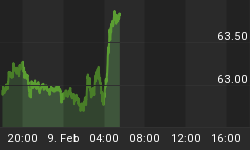Why read: Because as abhorrent as the idea is, some people, me included, believe United States, many Eurozone countries, and as a result of those countries, the world economy is going to need to push the 'reset button' at some point - and, depression may be the catalyst to that reset.
Commentary: An ever-increasing individual, company, or country debt eventually has to lead to financial failure - or so one would believe. That said, a recent article can be summarized as saying:
-
to date, quantitative easing has not lead to meaningful economic recovery;
-
more quantitative easing (whether in the Eurozone, the United Kingdom, or the United States if (or likely better said 'when') it comes seems highly unlikely to do other than push the end-game out a little further; and,
-
in the end, absent 'rabbits and hats' that most likely leads to one of two country-specific consequences:
-
a declared 'default'; or,
-
an undeclared but 'de facto default' pursuant to an 'inflation strategy'.
-
In essence, in the first instance the result most likely is deflation that leads to depression, while the in the second instance the result most likely is high levels of inflation that eventually lead to depression.
If either scenario ensues, the endgame will be painful if either scenario unfolds in the next months and years.
You might want to consider reading the referenced article. I think it is a reasonably balanced and not an 'extremist one'. Certainly it is does not discuss or recommend a 'fortress mentality and strategy' that would have one now storing massive amounts of foodstuffs, water, and ammunition.
Topical Reference: The Deflation-Inflation Alternate Routes to Depression, Monty Pelerin's World, July 26, 2012 - reading time 4 minutes, accompanying 10 minute video titled 'The Economic Collapse for Dummies'.
















